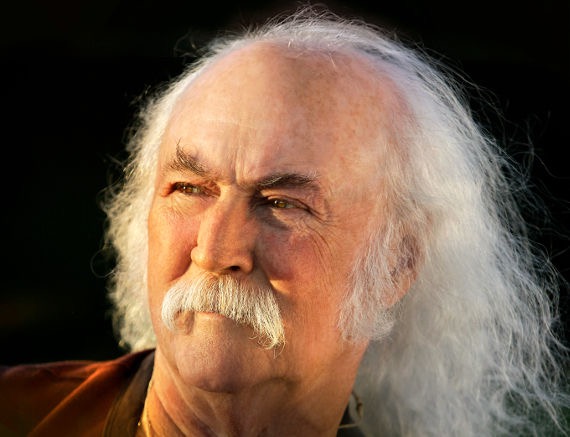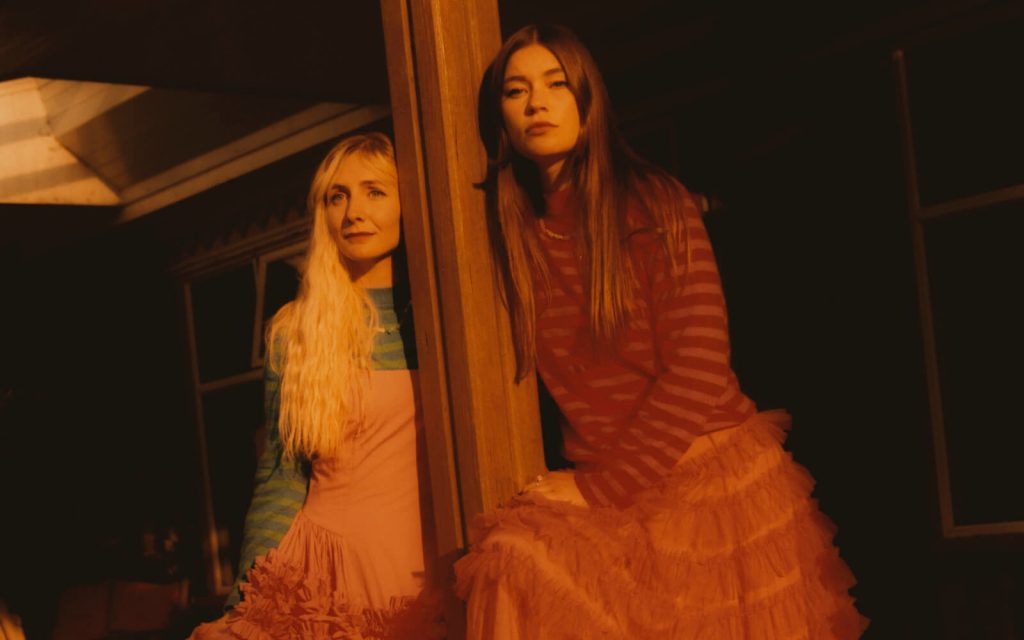 Photo: Django Crosby
Photo: Django Crosby
by Yasmine Shemesh
Published in print and online in the August 2016 issue of BeatRoute Magazine
David Crosby is happy. Content in a way that audibly radiates from the easy tone of his voice to the rapture of his deep belly laugh — something that comes from knowing what’s important in his life, clutching it close to his heart, and squeezing it tightly.
Certainly, this kind of joy is an achievement for any person, let alone a man who has endured his share of turbulence in the duration of his extraordinary contribution to music. A two-time Rock and Roll Hall of Famer who, in 1967, was ousted from The Byrds on accusation of being difficult to work with. A folk music icon whose verbal exchanges between Graham Nash and Neil Young are as legendary as the music that Crosby, Stills, Nash & Young (and other iterations of the band) have made together; an emblem of rock and roll’s golden age that once served prison time for drugs. A songwriter and guitarist, unrivalled in brilliance, who, on the song “Time I Have,” sings, “I’m looking to find some peace within me to embrace to bring that smile back to my face.”
Crosby has found that peace.
“I spent a lot of my life being angry and it’s such a waste of time,” he sighs, speaking over the telephone from Santa Barbara. “It gets you absolutely nowhere. I’m trying very hard not to spend time being either sad or angry, either one. It doesn’t get anything and it doesn’t create art, either.”
When asked what makes him truly happy, the response is simple. “My family.” Indeed, his wife and children are the biggest reason why, at 75, Crosby has found himself in the midst of one of the most prolific periods of his career. “If I’m happy with my family and I’m happy with my life,” he insists, “That’s when I’m creative.”
Crosby’s newest album, Lighthouse, is due in October. “I think you’re going to like it,” he beams. “It’s one of the best records I’ve ever made.” It’s his second solo effort in two years, following 2014’s Croz, his first in two decades. The turnaround is not surprising, given that Crosby has been riding a surge of inspiration lately. “I’m kind of amazed that I’m writing this much now,” he admits. “But I am writing a lot.”
Crosby asked Michael League, the bandleader for jazz groove ensemble Snarky Puppy, to produce and co-write Lighthouse. A fan of the group, Crosby originally thought the collaboration meant getting the entire multi-instrumental collective to perform on the album. League had a different idea. He wanted to channel the feel of Crosby’s seminal 1971 solo debut, If I Could Only Remember My Name, and work within an acoustic setting. Crosby, who maintains those arrangements are where he feels most at home, was all aboard.
The album is wholly acoustic, save for a couple of raps against the guitar neck from Crosby’s wedding band.
The gentle intricacy has the musician at his finest, emphasizing his imaginative guitar playing and distinctive warble. Crosby describes the format as a return to his roots, which recalls days as a young folk singer in the early 1960s playing in Greenwich Village coffeehouses, and the great affection he’s had for the stringed piece since childhood. “My brother gave me his guitar when he got a new one and I started playing it, and as soon as I had two chords that I could switch back and forth between, I thought, ‘Oh, wow!’” he chuckles, adding, “And it got me all excited, and I loved it, and I have never stopped loving it.”
Crosby has always been a profound lyricist and the subtle instrumentation of Lighthouse allows that genius to shine. The first offering released publicly was “Things We Do For Love” — a tender, uplifting ballad written for his wife, Jan Dance. “I’ve been in love with the same girl now for, oh, 40 years,” Crosby says. “And so I have a very, very strong connection with her and it’s taught me a lot. You have to work at a relationship like that, you have to do things — not just say, ‘Honey, I love you.’ You have to do things that show them that you love them. And it can be little things, it can be just doing the dishes before they came home so they come home to a clean kitchen. It can be something that small.”
The craziest thing he’s ever done for love? “Oh!” Crosby descends into a fit of laughter. “I don’t know if I could tell you in public.” He giggles again. “Yeah, it’s a loaded question. There’s — no, I can’t tell you!”
Crosby, however, has never shied from speaking his mind about world affairs and there are many socially conscious moments on Lighthouse. “There’s a really good song on there — he said modestly,” Crosby interrupts himself, chuckling, then continues, “but, there’s a really good song on there about Syrian refugees coming ashore in Greece. I have a friend who keeps going back to Greece and helping people out of the water, and that’s called ‘Look in Their Eyes.’ I guess you could call it political, although I think it’s just humane.”
As for today’s political climate, Crosby is severely troubled by it. “I think it’s a very, very, very sad state of affairs when an idiot like [Donald] Trump can actually become a candidate of a major party.”
He adds: “I don’t much like Hillary [Clinton] either, ‘cause she’s just another politician. She’s a good one — she’s smart about it, she’s experienced at it. She’ll make a good president and we certainly should have had a woman president before this. But, I can think of a couple of women that I would rather were the president than her. But, Trump, that’s really sad. He’s an obvious idiot, obvious racist, obvious, you know, fool, and what it says about America that there’s that many stupid people that they would let him get to the point he’s at? That’s very disturbing. I find that very disturbing.”
“The truth is, it’s embarrassing to be an American now.” He pauses. “When I go to Europe, I tell everybody I’m a Canadian.”
One can’t help but associate the new album’s title with Crosby’s affinity for the ocean. Like acoustic guitar, it’s a significant part of what comprises him at the core. He’s been an avid seaman for many decades and Mayan, his former, 74-foot vessel, was a recurrent muse on which he penned classics from “Wooden Ships” to “Carry Me.” What, then, does water do for his soul? “A lot,” Crosby exhales. “It’s very peaceful, it’s very beautiful, and it’s very here and now. The longer you’re out there, the more aware of your surroundings you become, and the more at peace you become. It’s just wonderful. It’s wonderful. It’s very, very good for you.”
Crosby is currently on an intimate North American tour accompanied only by, on piano, James Raymond — his biological son who was put up for adoption in 1962. They reunited 30 years later, bonded over music, and have played together since 1997. As such, Raymond’s presence has been another monumental force in Crosby’s life.
“It was magical,” Crosby says, of reconnecting with Raymond. “It was a wonderful thing. Normally, that kind of meet-up doesn’t go well — people bring too much baggage to it. But James didn’t. He gave me a clean slate and a chance to earn my way into his life and he was very kind to me that way. As a result, we’ve become very close.”
For his family, Crosby is discernably grateful. It is their love that drives him forward; it is their love that continually inspires him.
It is what makes him happy.
Perhaps, his greatest achievement.






